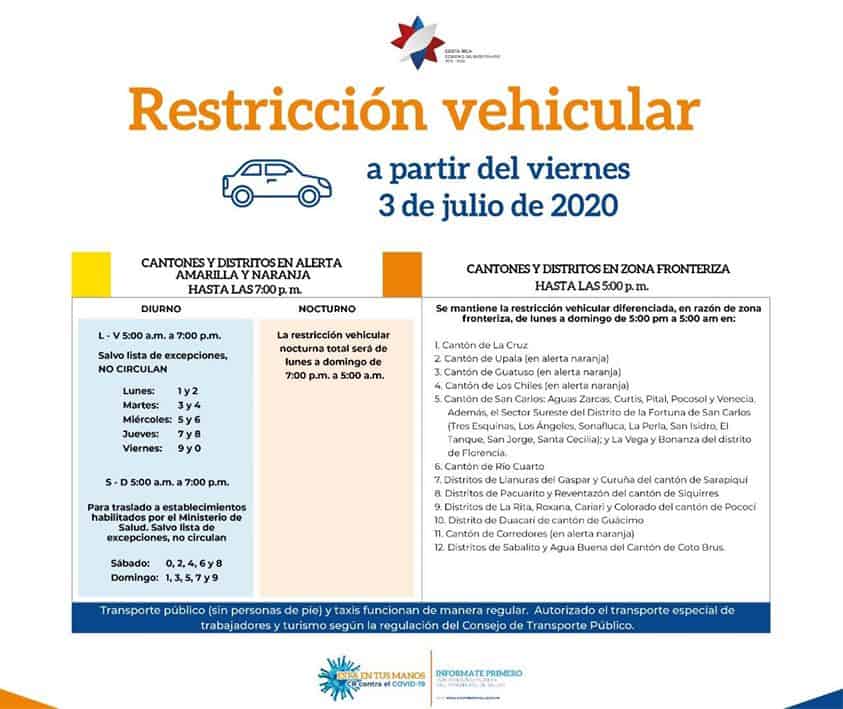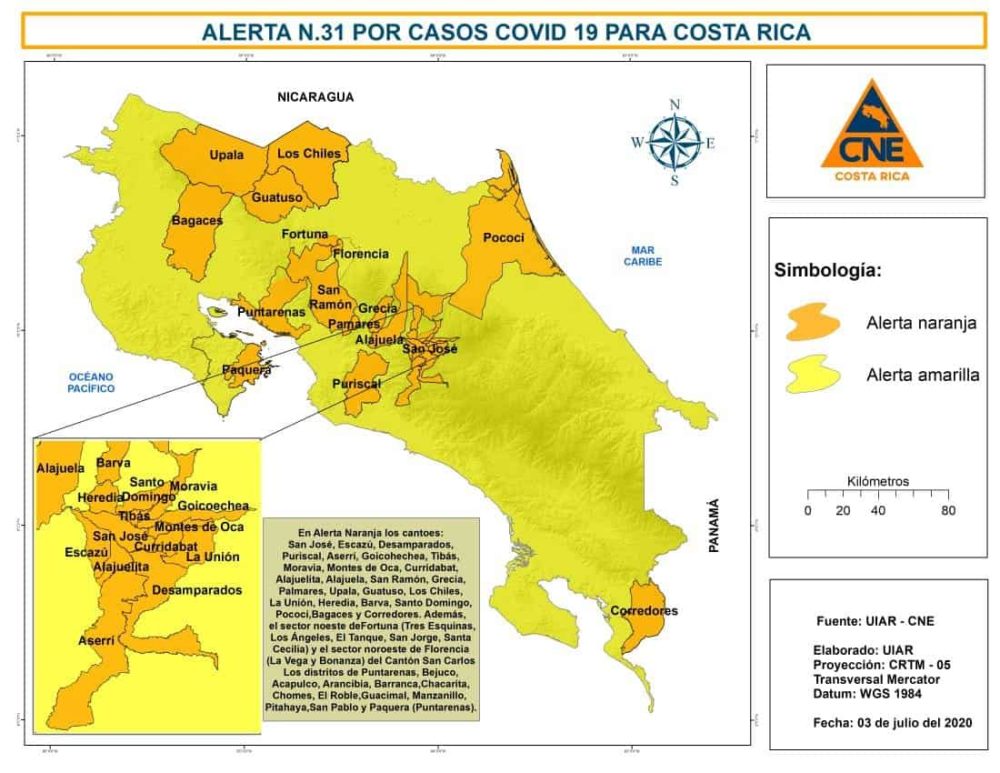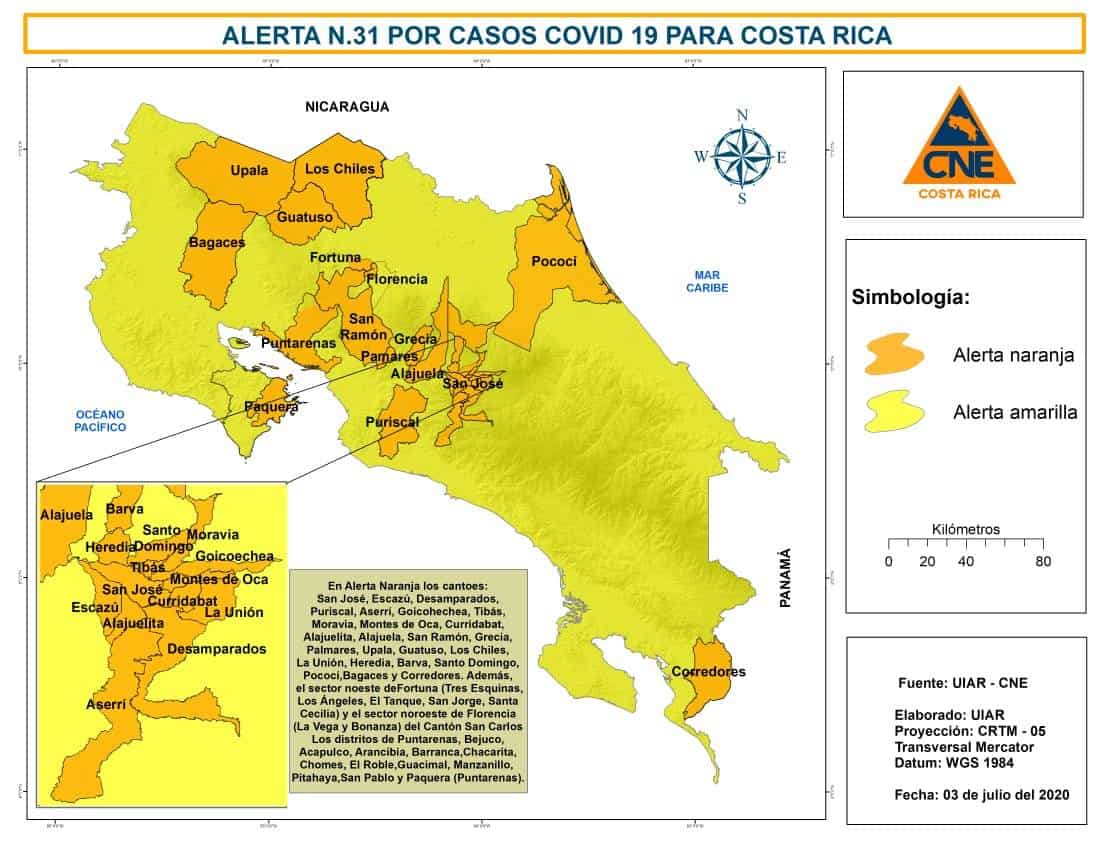The National Emergency Commission (CNE) on Thursday placed much of Costa Rica’s Greater Metropolitan Area under an orange alert and expanded the national vehicular restriction.
Here are the details as announced Thursday. They will be enforced beginning Friday, July 3 through at least July 13.
Changes to national vehicular restrictions
As of Friday, the nationwide nighttime vehicular restriction lasts from 7 p.m. to 5 a.m. every night, regardless of whether the region is under a yellow or orange alert.
Daytime restrictions based on the last digit of a vehicle’s license plate still apply:
- Monday: From 5 a.m. to 7 p.m., vehicles with license plates ending in 1 and 2 cannot drive.
- Tuesday: From 5 a.m. to 7 p.m., vehicles with license plates ending in 3 and 4 cannot drive.
- Wednesday: From 5 a.m. to 7 p.m., vehicles with license plates ending in 5 and 6 cannot drive.
- Thursday: From 5 a.m. to 7 p.m., vehicles with license plates ending in 7 and 8 cannot drive.
- Friday: From 5 a.m. to 7 p.m., vehicles with license plates ending in 9 and 0 cannot drive.
- Saturday: From 5 a.m. to 7 p.m., vehicles with license plates ending in even numbers cannot drive.
- Sunday: From 5 a.m. to 7 p.m., vehicles with license plates ending in odd numbers cannot drive.
In certain border regions, the nighttime restrictions apply from 5 p.m. to 5 a.m. nightly.

Expansion of Orange Alert
The below map indicates all regions in Costa Rica that will be under an Orange Alert beginning Friday, July 3.

For all regions under an Orange Alert:
- Commercial activities are permitted from 5 a.m. to 7 p.m. on weekdays, with the exception of: places of worship, public (city) parks, bars and mass gatherings.
- On weekends, supermarkets, pharmacies and medical centers are among the only businesses that can welcome customers. Restaurants can operate for carry-out or delivery.
- Hotels can operate at 50% capacity. Farmer’s markets (ferias) can continue to operate, including on weekends. Religious gatherings cannot operate.
All regions under a Yellow Alert remain in “Phase 3,” which allows for most commercial businesses to remain open during the week and on weekends, for extended beach hours, and for religious services. (Click here for details.)
Costa Rica to require masks
Costa Rica will require shoppers to wear masks or face shields at supermarkets and all other shops nationwide.
Previously, the country required workers — but not the public — to wear masks at most commercial businesses. Homemade masks are permitted.
You may be denied entry into an establishment if you do not have a mask or face shield.
Community transmission in GAM
The Health Ministry has declared there is community transmission of the coronavirus in the Greater Metropolitan Area.
Health Minister Daniel Salas indicated that just 35% of all new cases since Sunday have an identified epidemiological nexus, meaning authorities cannot effectively slow spread by isolating known contacts.
Salas reiterated the importance of physical distancing, avoiding crowds and staying home when possible.
This is a developing story and is being updated.

